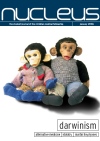Medical students get used to answering tricky clinical questions under pressure. However, we might flounder if questions turn to the spiritual aspects of medical practice. Anticipating such situations, this book equips both medics and lay people with succinct, biblical answers to a diverse range of questions surrounding healthcare.
Designed to be easy to read, Hard Questions is written as a series of questions and answers and commendably, avoids both medical and Christian jargon. Initially broad questions such as, ‘What does it mean to be human?’ and, ‘What is health?’ are addressed, through which the Christian world view and gospel is explained. The book then probes further. For instance, have you ever wondered how we can know if a surprising healing is really a miracle, or when we might suspect the cause of our patient’s disease to be a demonic spirit? Dr Fergusson draws on his experience as chair of the Acorn Christian Foundation (a large body working in Christian healing) to provide well researched perspectives throughout, and uses his questions to challenge the reader to consider how ‘traditional biblical understandings of what it means to be human…would have an enormously beneficial effect on health in the UK if they could cross over into the National Health Service.’
Some of the strongest sections are those in which the author describes experiences from his ten years as a GP in a Christian practice in London, often using patients as examples. The benefits and potential problems of praying for patients are illustrated by one of his patients who after prayer initially appeared to be healed, later relapsed and all the while never showed any interest in Jesus. A helpful checklist for healing prayer follows, including how to gain informed consent and when touch may be appropriate.
Unfortunately, the strength of the book is also its weakness. Being a handbag sized 168 pages, nothing is covered in any great depth and some controversial issues are only superficially addressed. Sometimes, a question is posed in the text but not answered, instead it is followed by an apology that there isn’t room to address it in the book. Though the reader is directed to further reading at the end of the chapter, this makes for frustrating reading!
This is a well researched and gospel centred little book. It is a handy tool to have around for personal reference and as a follow-up to evangelistic conversations. The book is prudent reading for any medical student, as at some time or another we will all be challenged on the issues covered. Why face such questions unprepared?
Reviewed by:
Catherine Gwilt
Clinical student at Imperial College, London































